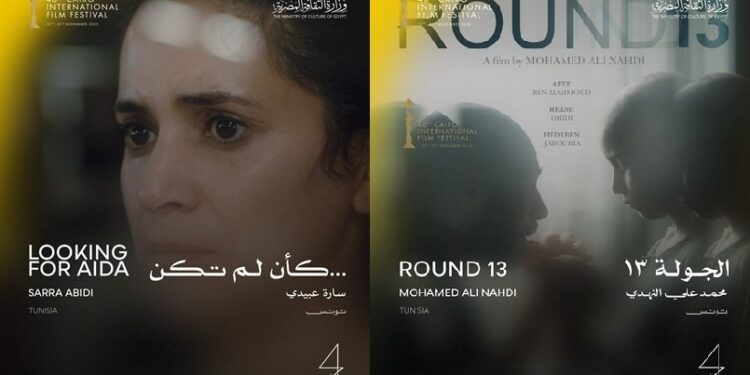At a press conference unveiling the 46th edition of the Cairo International Film Festival, which this year is themed around humanity, Mohamed Nabil, head of the “Horizons of Arab Cinema” competition, presented both the selection of films and the jury tasked with awarding the prizes. Among the eight films in contention, two Tunisian productions, Looking for Aida by Sarra Abidi and Round 13 by Mohamed Ali Nahdi, stand out, joining works from Egypt, Lebanon, Morocco, Iraq, Germany, and France.
Nabil highlighted the range and diversity of the selection. Every film is either a world premiere or a regional MENA premiere, and each tackles distinct themes, from deeply personal stories to social realities, all approached with a singular artistic voice. “I want to thank all Arab filmmakers,” he said, “who, despite the challenges, continue to create, bringing their unique visions and voices to the screen.” Notably, half of the films are directed by women, reflecting the growing influence of female filmmakers in the Arab world.
The jury itself brings together a wealth of expertise: Karim Aïtouna, a Moroccan producer known for championing independent cinema; Nadia Dresti, board member of the Locarno Film Festival in Switzerland; and Abdelsalam Moussa, an Egyptian director of photography. Charged with evaluating such a diverse slate of films, they will decide on awards guided by both craft and creativity.
The lineup reveals the vitality of contemporary Arab cinema. Azza by Stefanie Brockhaus (Germany | 2025 | 89 min) follows a female driving instructor in Saudi Arabia, struggling to make ends meet while raising four children. Seeking relief from the pressures of daily life and a difficult past, Azza embarks on a road trip across the desert—a journey that becomes both a physical escape and a personal quest for freedom.
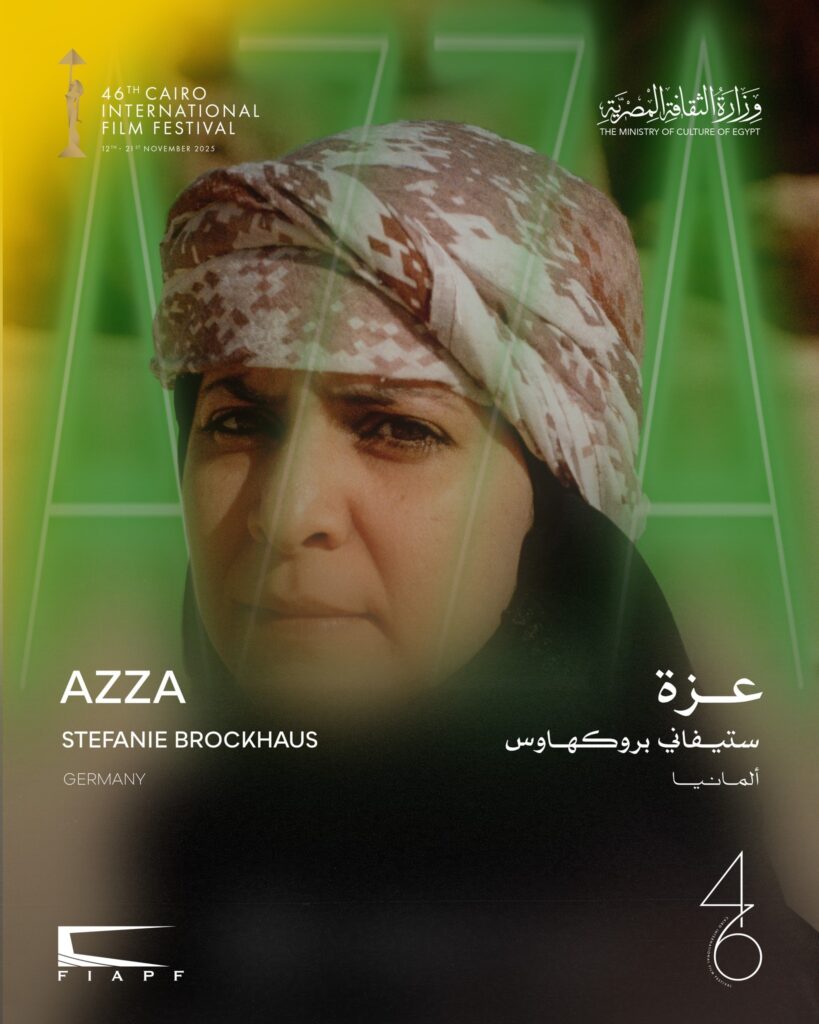
In Egypt, Complaint No. 713317 by Yasser Shafiey (2025 | 76 min) opens with a seemingly trivial problem: a broken refrigerator. A quiet, middle-class couple in their sixties attempts to get it fixed, only to find themselves caught in a maze of phone calls, delays, empty promises, bribes, and silences. What begins as a simple repair turns into a poignant struggle to maintain dignity within a rigid, unyielding bureaucracy.
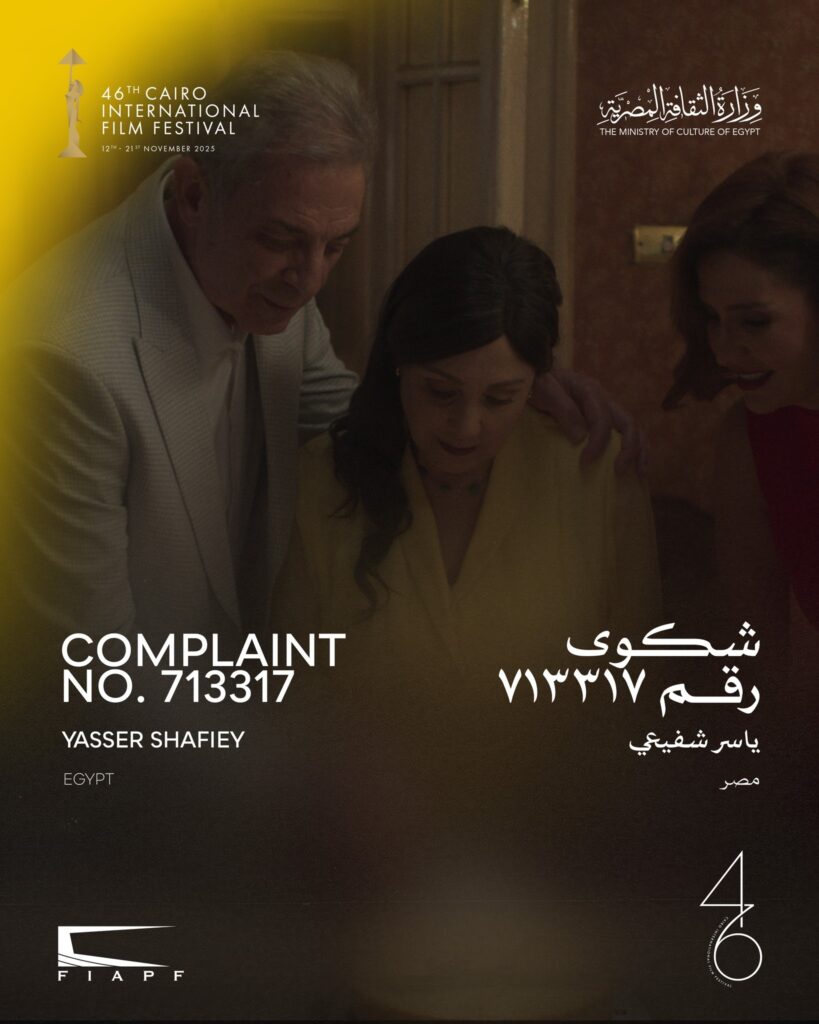
From Lebanon, Dead Dog by Sarah Francis (2025 | 92 min) explores the slow unraveling of a marriage long separated by time and distance. Walid and Aida reunite after years apart, and Francis’s careful storytelling gradually reveals secrets and tensions long buried. Every glance, gesture, and pause builds a mosaic of a relationship trying to reconstruct itself while confronting past wounds and unspoken truths.
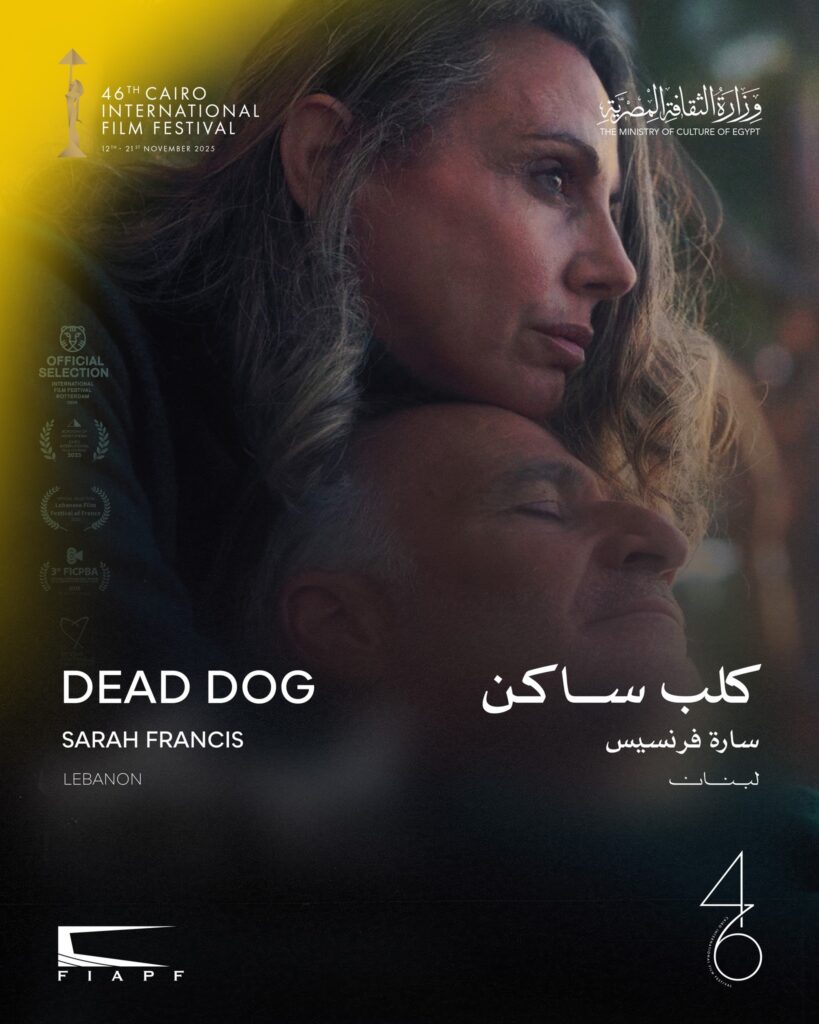
Memory and personal history are central to Flana by Zahraa Ghandour (Iraq, France, Qatar | 2025 | 85 min). The film follows a director as she seeks to understand her childhood, reconnect with a vanished friend, and give voice to Iraq’s forgotten daughters. Intertwining personal investigation with a confrontation of collective history, the narrative captures both the fragility and resilience of memory and identity.
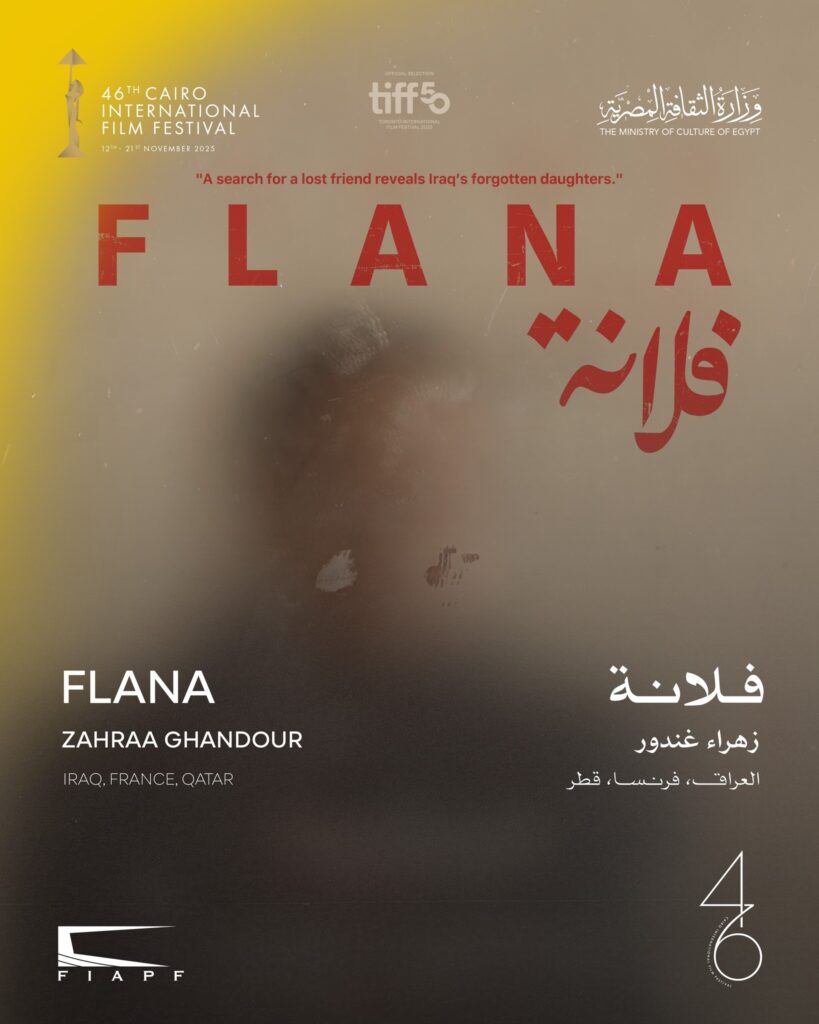
In Morocco, Goundafa, The Cursed Song by Ali Benjelloun (2025 | 96 min) transports viewers to a small village in the High Atlas. Three young men dream of musical success while the women, led by Fadma, tend the land with song. The arrival of a conservative imam disrupts village life, pressuring some to deny their Amazigh identity and igniting community tensions. The film sensitively portrays the clash between tradition, personal ambition, and social change.
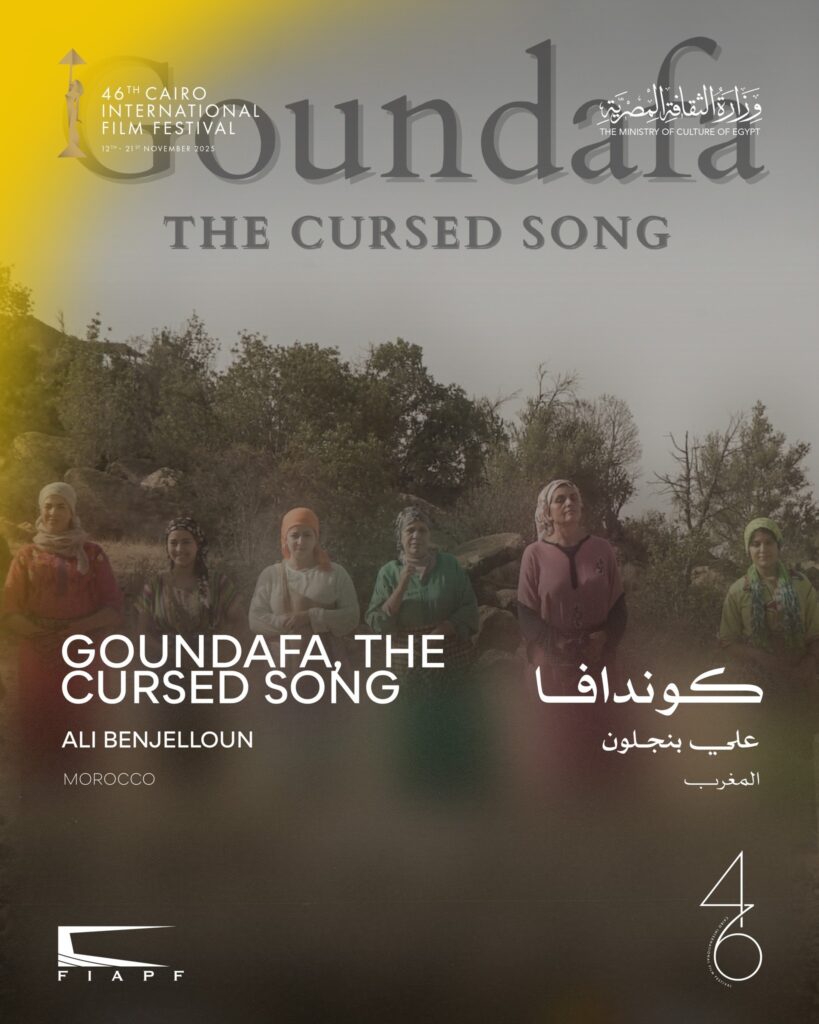
Looking for Aida by Sarra Abidi (Tunisia | 2025 | 89 min) depicts the upheaval in Ayda’s life after the sudden departure of a longtime colleague from her call center. Her unspoken feelings for him, combined with a cascade of unforeseen events, prompt her to reassess her life, her relationship with time and her environment, and ultimately, herself, in a story that balances introspection with emotional nuance.
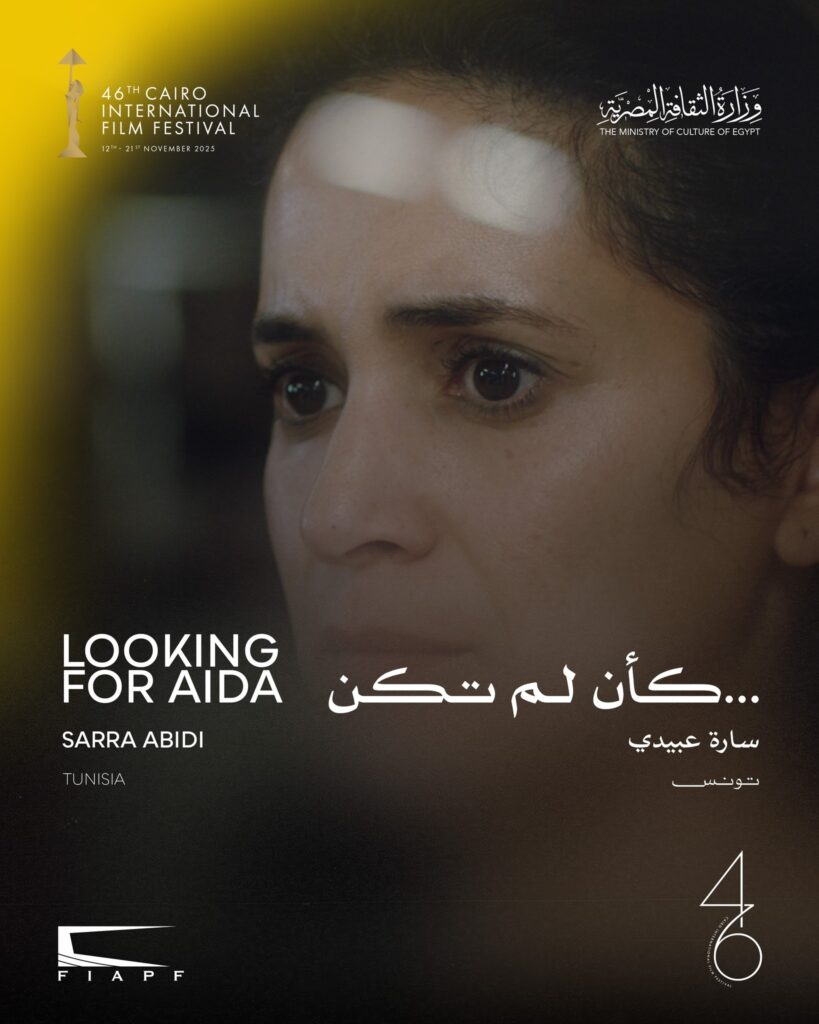
Pasha’s Girls by Mohamed Al Adl (Egypt | 2025 | 98 min) intertwines social drama and suspense. Following a terrorist attack, beautician Nadia is found dead. Her colleagues attempt to conceal what appears to be a suicide to protect their reputation. As they prepare the body and seek an illegal burial permit, the staff confront uncomfortable truths about themselves and their relationship with Nadia, offering a layered portrait of human responses to tragedy and the weight of social responsibility.
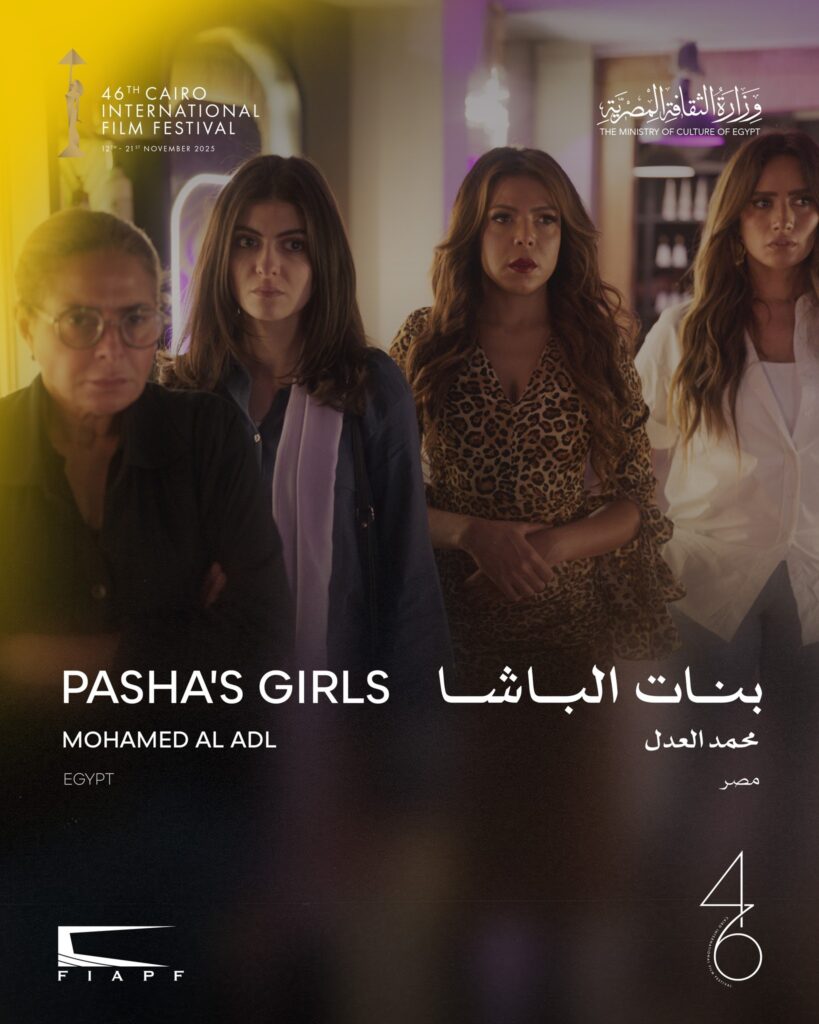
Finally, Round 13 by Mohamed Ali Nahdi (Tunisia | 2025 | 89 min) chronicles Kamel, a former boxing champion who retired for the love of his wife, Samia. The family is thrown into turmoil when their son Sabri fractures his arm at school and is diagnosed with a malignant tumor, sending the characters into a profound journey of fear, resilience, and hard choices.
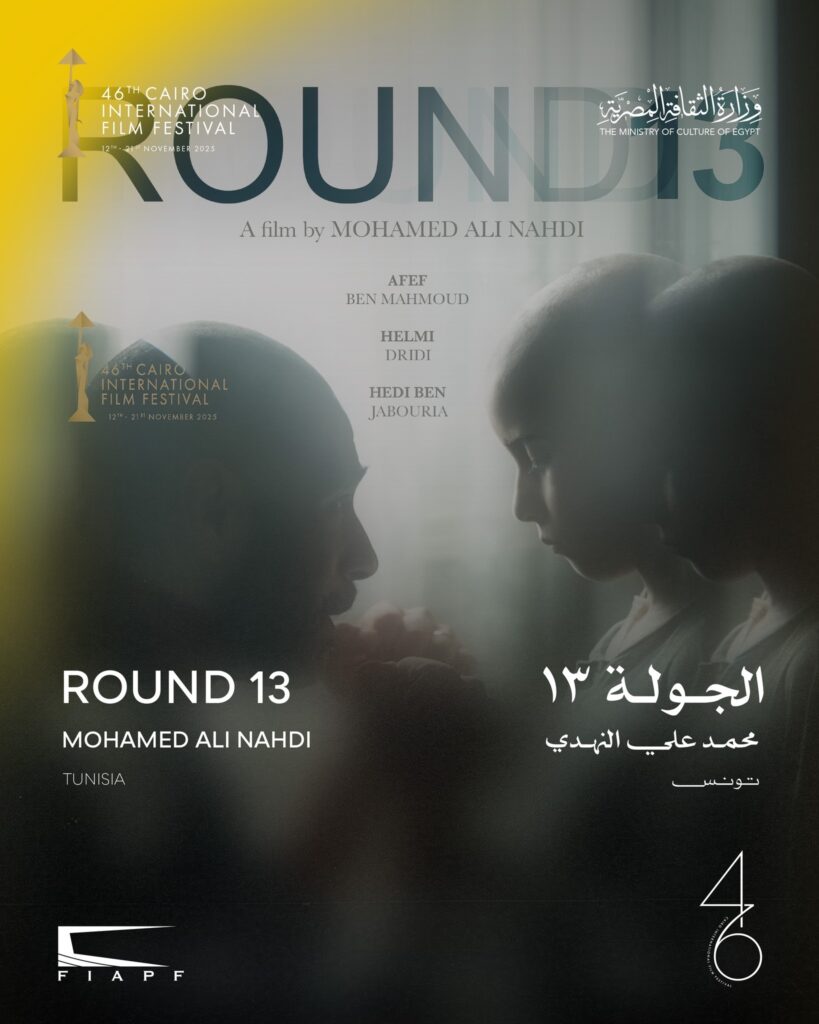
Through the Horizons of Arab Cinema competition, this edition of CIFF celebrates the creativity, resilience, and diversity of Arab filmmakers. Each film offers a unique lens on contemporary life, individual and social struggles, and the ways Arab cinema continues to innovate while amplifying its voices on the international stage.
Neïla Driss


